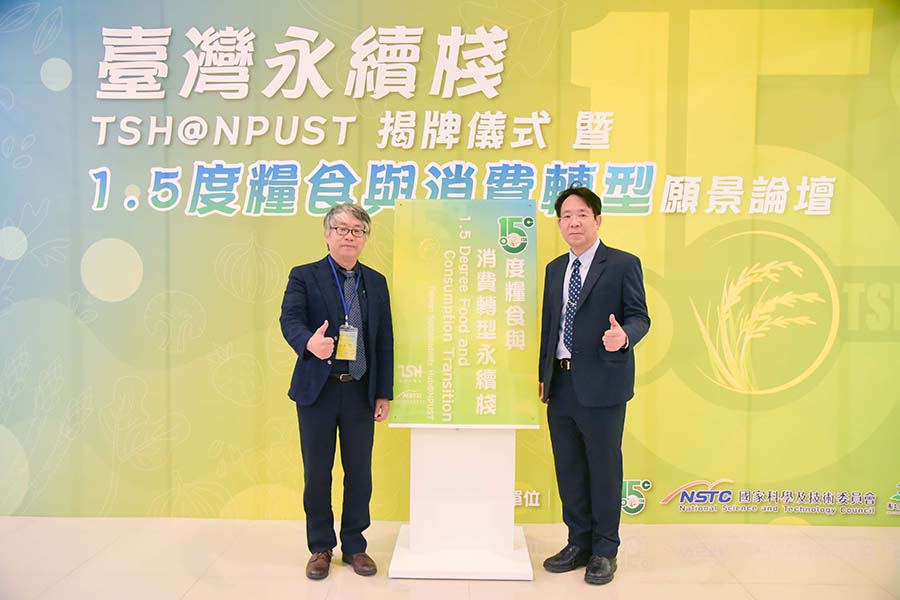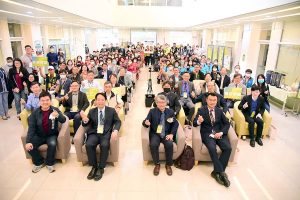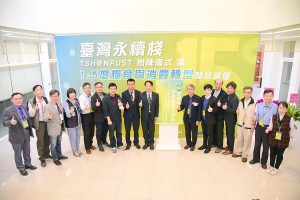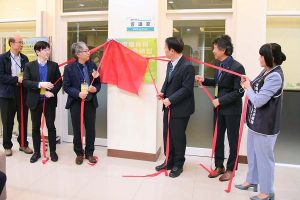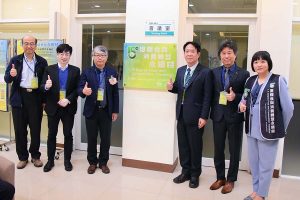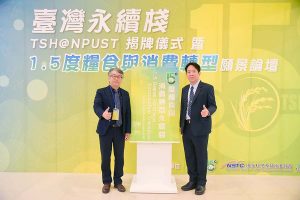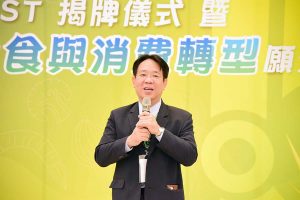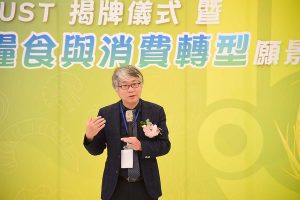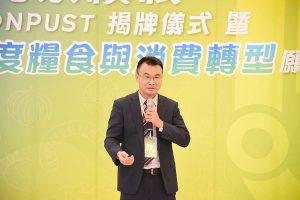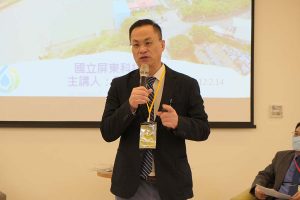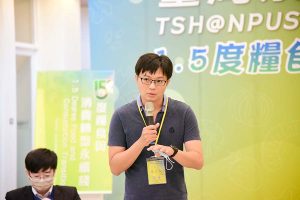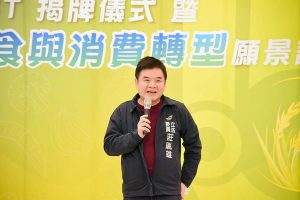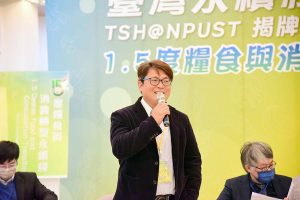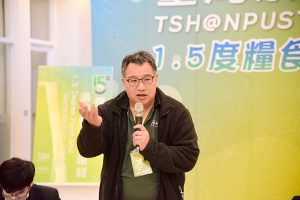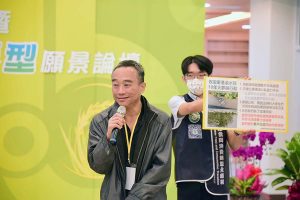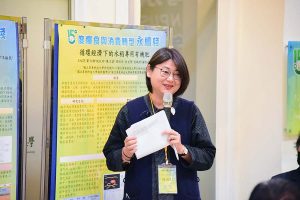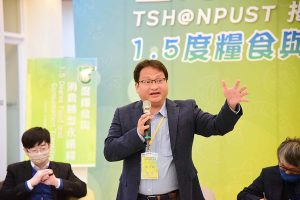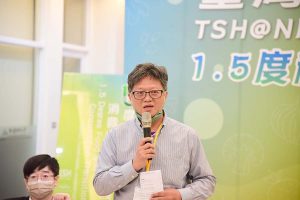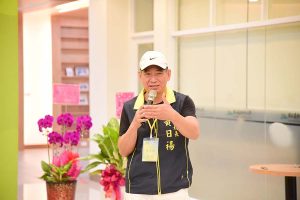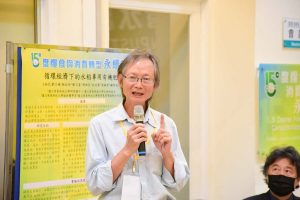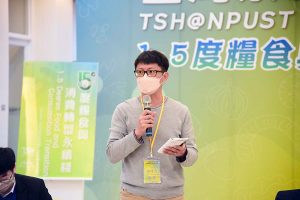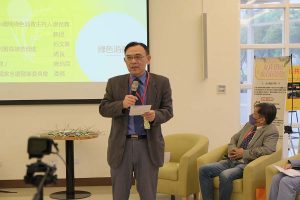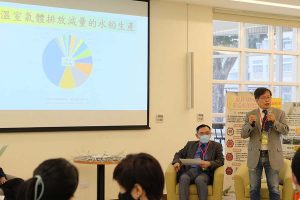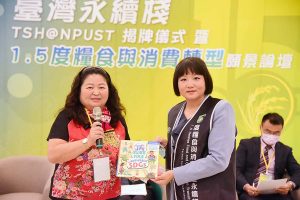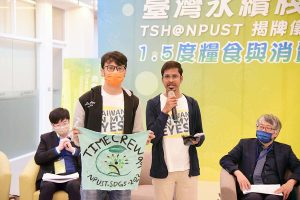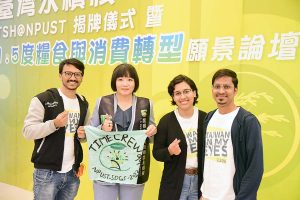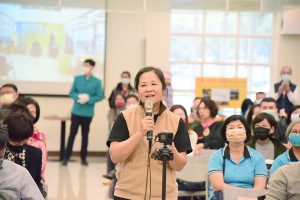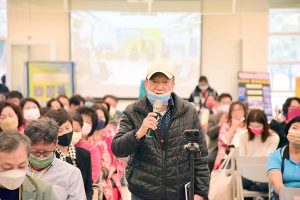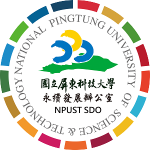Global Warming anomalies and fears that a 1.5°C increase in global temperatures may impact food production or cause species extinction, has incited a major response. National Pingtung University of Science and Technology (NPUST), which is known for excellence agricultural science and technology is actively cooperating with the Taiwan Sustainability Hub (TSH) in order to promote sustainability goals. On February 14th, at the NPUST Big Data Center, a plaque unveiling for the “TSH@NPUST 1.5 Degree Food and Consumption Transformation Sustainability Hub” was held together with a “Vision Forum”. The forum put into focus the nexus between water resources and food (WF Nexus), as researchers discussed new models of carbon reduction and regenerative agricultural production, as well as issues related to green consumption. The overall goal will be to conduct a series of forums which will help reshape food production and consumption systems and keep them in balance with the ecosystem. For the plaque unveiling ceremony, which was hosted by Deputy Minister Minn-Tsong Lin of the National Science and Technology Council (NSTC) and NPUST President Chin-Lung Chang, a number of related VIPs, including NSTC Department of Natural Sciences and Sustainable Development Director Meng-Fan Luo, NSTC Department of Life Sciences Director Yang Tai-horng, Taiwan Sustainability Hub convener Hsing-Sheng Tai, and head of the NPUST Sustainability Hub, Herlin Chien, were invited to jointly do the honors.
Deputy Minister Minn-Tsong Lin said in his speech that “the transformation to Net Zero and the implementation of related technologies must be based on knowledge and empirical data. With economic, social and cultural support, the same is true for the transformation of the food system. It is not only about R&D on production technology, but also includes the collection of basic data, policy support, social adjustment, and value shaping. In recent years, NSTC has been promoting the establishment of long-term social and ecological centered observation stations and networks, and has been pursuing research related to Net-Zero technology and social science. All of these are done to carry out cross-field collaboration, construct evidence and knowledge based innovative solutions, and plan a forward looking path for local transformation. The Taiwan Sustainability Hub serves as a database and platform for collaboration. On one hand, from the perspective of high-level transformation governance, it closely observes domestic/foreign policy trends and development experience. On the other, it helps link different professional fields, promotes collaboration between academia and practitioners, and strengthens public communication based on scientific evidence”.
NPUST President Chin-Lung Chang said “in recent years, in response to the impact that Climate Change and Global Warming are having on humanity and agricultural production, NPUST’s faculty has been actively investing in research on water conservation and carbon reduction. The interdisciplinary team put together by the International Service Center for Irrigation R&D, for example, developed a water-saving rice which can reduce water use by 15% and increase production value by 30%. This high-quality rice with rich nutritional value is an important achievement with respect to energy reduction, water conservation and land and ecological protection, and it is the best example of environmentally friendly farming. For more sustainable and diversified consumption and production, we hope to contribute to the construction of a low-carbon, sustainable society. It is a great honor to jointly promote the ‘Sustainability Hub’ project together with the National Science and Technology Council. In the future, NPUST will further the promotion of 1.5-degree food production and sustainable Green consumption transformation. We welcome everyone who has come from afar to demonstrate care for the environmental issues around us. We hope that the establishment of this platform can allow for rational communication and dialogue and for brainstorming to take place so that specific solutions can be found and that by working together, Taiwan can move towards a new milestone of ‘low carbon’ or even ‘net zero emissions’”.
Council of Agriculture Minister Chen Chi-Chung expressed that “we are very glad to participate in this grand event and we hope that through the establishment of the Taiwan Sustainability Hub and the sharing between the participants of the forum, we can provide professional and practical experience in a systematic manner. I wish everyone a smooth and successful event”.
In his speech, Legislative Member Jui-Hsiung Chuang stated that “in face of extreme drought and other climate impacts, we need to emphasize circular agricultural economies and the transformation of food consumption patterns. Through this forum, participants can discuss current agricultural problems and how to effectively solve them, and also propose projects that can be explored. This way we can promote a deeper understanding among the public towards Taiwan’s food production and its transformation to sustainable consumption.”
During the forum, Council of Agriculture Minister Chen Chi-Chung and Legislative Member Jui-Hsiung Chuang participated in talks with local civic organizations, farmers, environmental protection groups, village-level agencies, and representatives of small farmers from various fields. Industry officials and scholars discussed the most popular agricultural issues and presented sustainable solutions—not only looking at R&D on new production models, such as carbon-reducing farming methods and regenerative agriculture, but also providing guidance to farmers on how to cooperate with enterprises.
In terms of food production, a new model of regenerative agricultural production for the health of the earth, the soil and people –together with economic prosperity and equity for vulnerable communities was explored. In relation to food consumption, a new practice of “integrating production and consumption”, whereby the roles of consumers and producers intersect, was put into focus. And for food sustainability, the 3R (reduction, reuse and recycling) prototype model was offered as a way to adjust paddy rice or biogas residue and slurry recycling and promote food consumption habits built on circular agricultural economies and a “1.5-degree lifestyle”. The integration of information and communication technology (ICT) was also encouraged as a means of promoting cross-domain, cross-border and civic engagement cooperation.
National Pingtung University of Science and Technology was founded on agriculture in 1924. For nearly a hundred years, the school has been committed to cooperation on national agricultural policies and the cultivation of talent in agricultural science and technology. Not only has it occupied a pivotal position in the history of Taiwan’s agricultural development, but has also helped lay a solid foundation for Taiwan’s economic development. In response to the United Nations Sustainable Development Goals, the university is cooperating with the government to promote carbon reduction, Net Zero and carbon neutrality, and greenhouse gas emission controls. With the establishment of the TSH@NPUST 1.5 Degree Food and Consumption Transformation Sustainability Hub, NPUST now looks forward to exploring new ways to help Taiwan adapt to the related opportunities and challenges in the food production and consumption system and, together with its partners, work towards sustainable production and consumption practices for the future.






